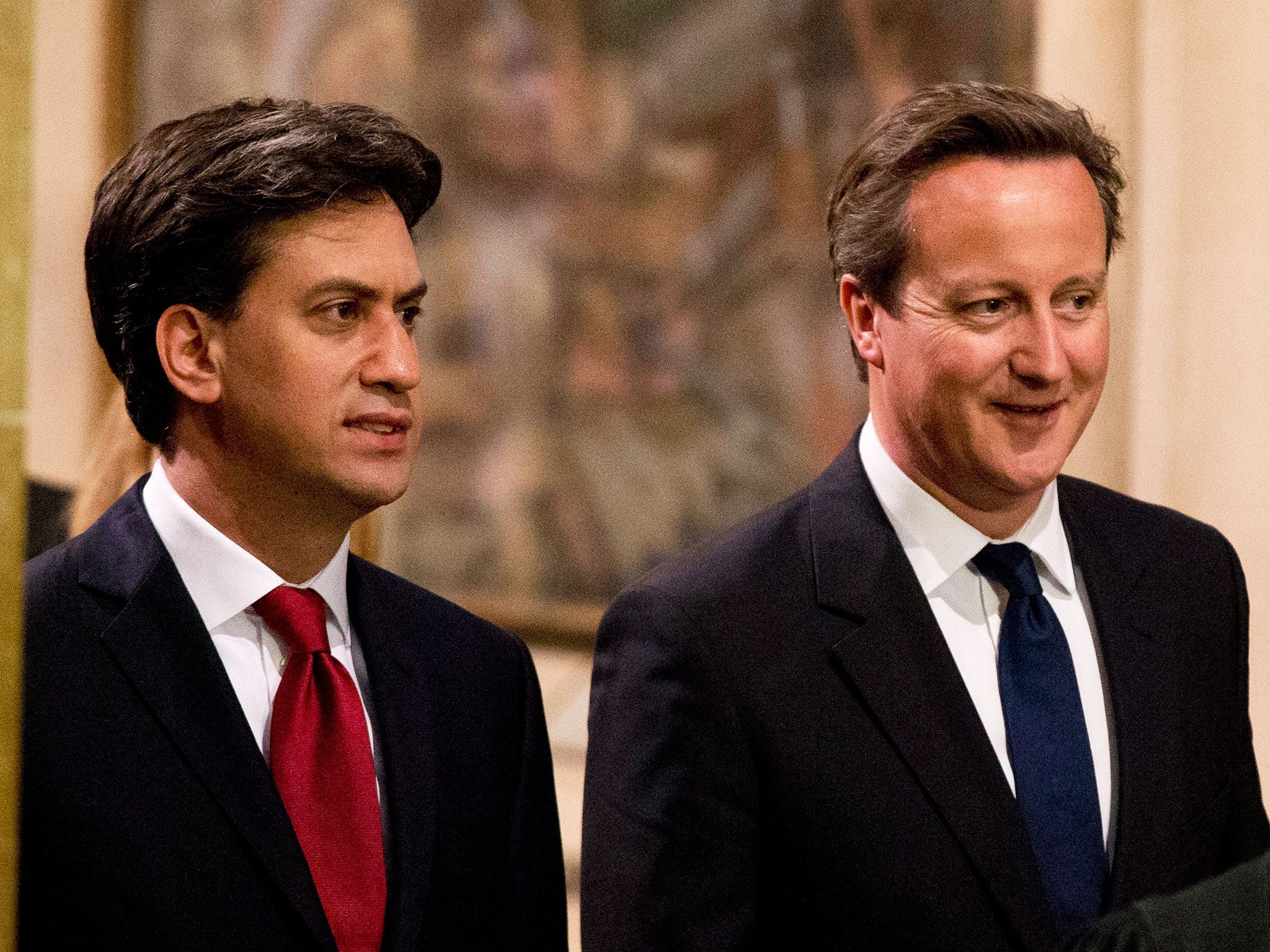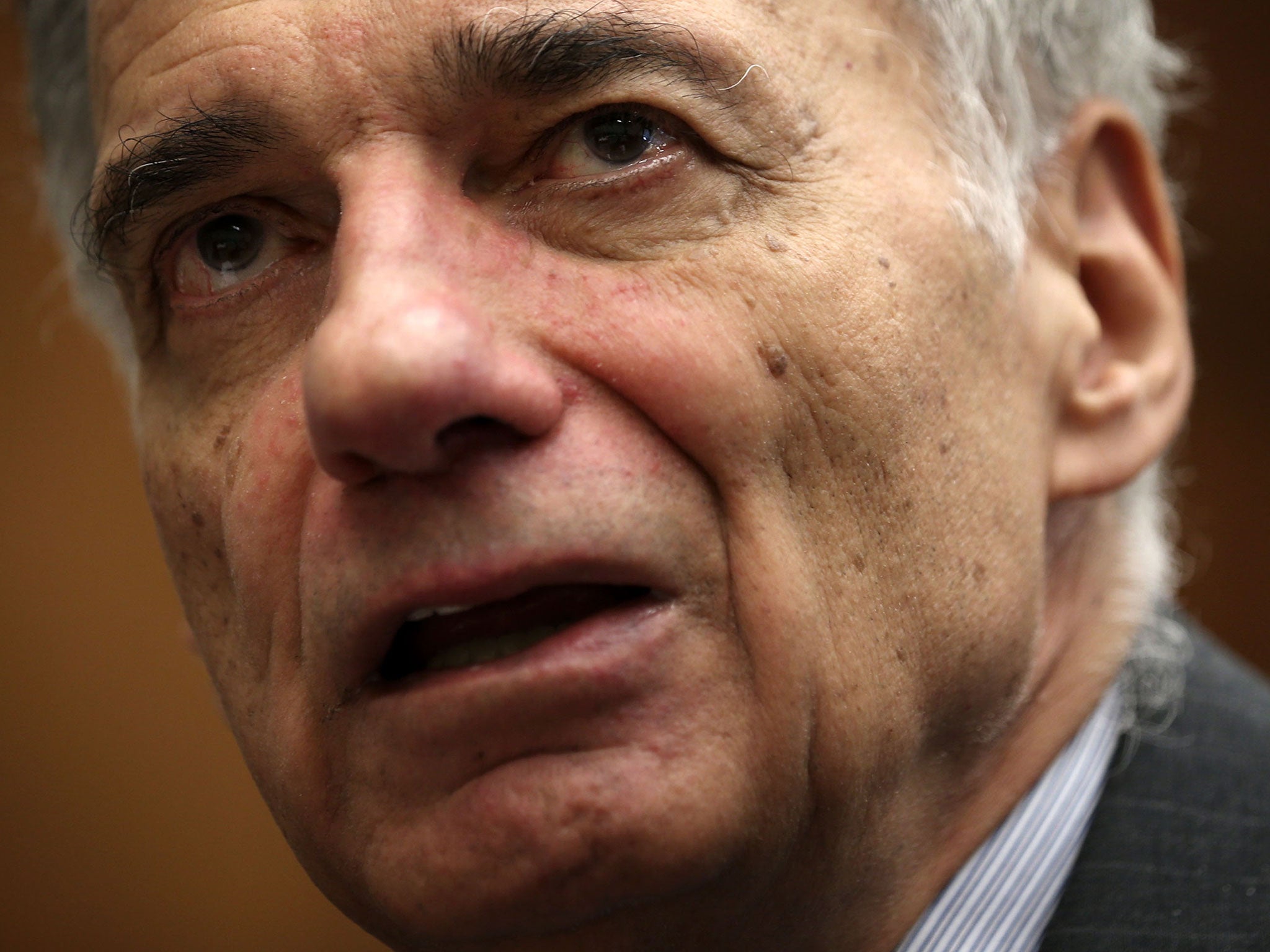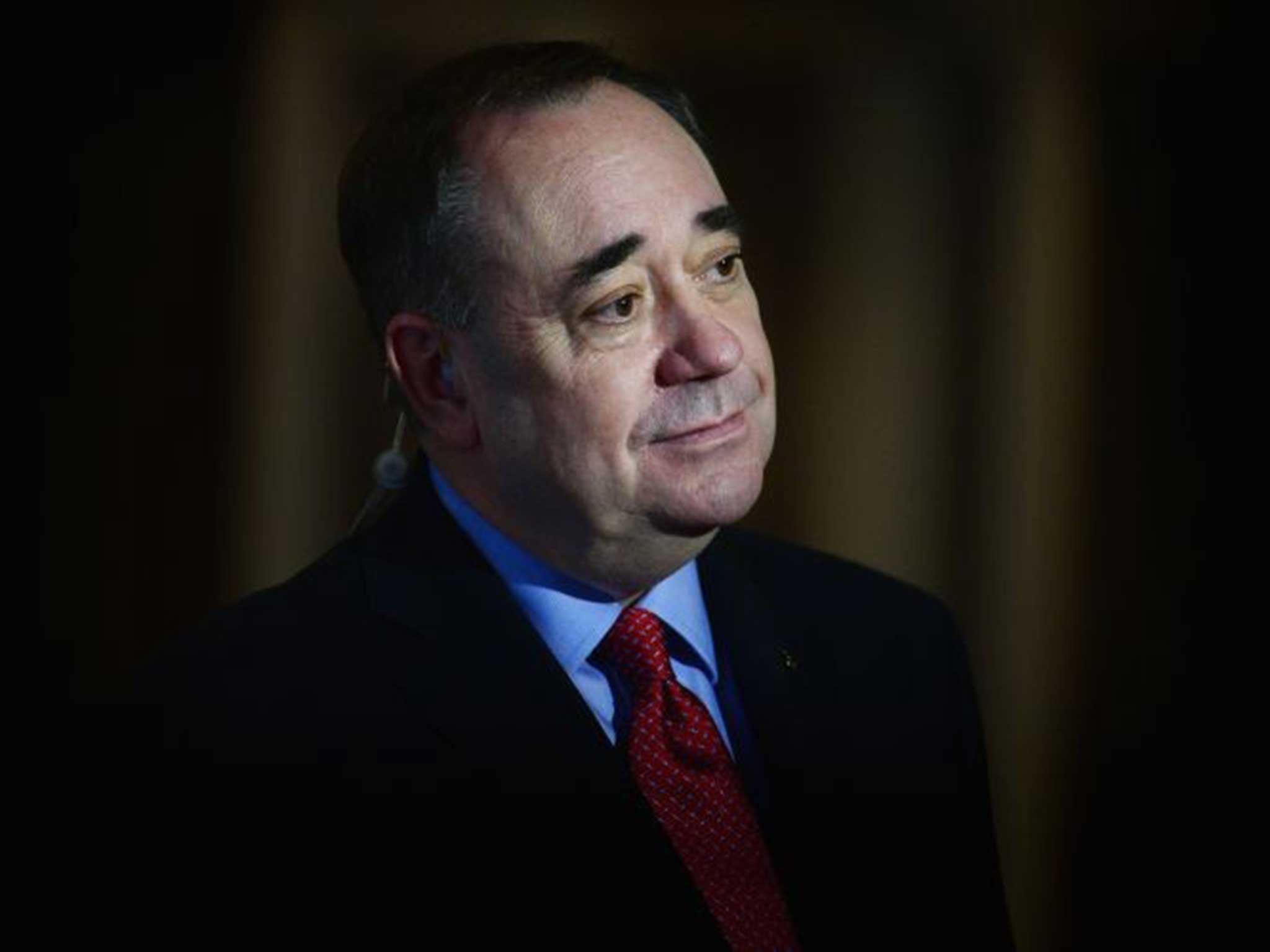Tories and Labour desperately trying to win back support lost to the smaller parties
Inside Westminster


With just over 100 days to go before the general election, the two biggest parties are deeply worried that their support is not big enough.
Labour and the Conservatives are desperate to win back supporters who have drifted off to the once “minor parties”, who may play a major role after May 7.
Labour plans to revive memories of Ralph Nader, the American political activist who stood as the Green Party candidate in the 2000 Presidential election. His 2.7 per cent of the vote was blamed for handing George W Bush victory over the Democrats’ Al Gore. Labour hopes that will strike a chord with people tempted to vote for the resurgent Greens or rampant Scottish National Party, who pose an increasingly dangerous double threat to Ed Miliband’s hopes of becoming prime minister. As one Labour source told me: “People should remember that Ralph Nader brought the world George W Bush and the Iraq War instead of President Al Gore and radical action on climate change.”

David Cameron has a similar headache in the form of Ukip. Yesterday the Conservatives also resorted to scare tactics, sending out personalised emails targeting people who may not vote on May 7. “Imagine if that meant Ed Miliband became prime minister,” the message said, alongside an unflattering photo of the Labour leader and the words: “Scary, isn’t it?”
The big two parties are rattled. The old certainties of an election decided in Labour-Tory marginals are gone. Ukip and the Greens will not win many seats but could decide the outcome in scores of marginals. The best Tory and Labour brains have no idea how that will play out. Then there is Scotland, where the SNP could easily deny Mr Miliband the keys to Downing Street.
In a poster today, the Tories showed Mr Miliband and Alex Salmond embracing outside Number 10 and warned: “The SNP would prop up Ed Miliband –meaning chaos for Britain.” This refers to the SNP’s willingness to enter a post-election arrangement with Labour, but not the Tories. The SNP would not enter a formal coalition like the present one and take Cabinet seats. But it might support a minority Labour government in key Commons votes –a “confidence and supply” deal.
Mr Miliband has no intention of hopping into bed with the SNP. But he may need to warn Scottish voters explicitly that if they vote for the Scottish Nationalists in the hope of getting a Labour-SNP government, they may end up with a Tory one.

The Lib-Con Coalition has provided stable government since 2010. And yet a looser “confidence and supply” deal is the flavour of the month. Ukip, the Greens and the SNP talk up the prospect. In their private “war-gaming” for a hung parliament, senior Labour figures recall that under Harold Wilson in the 1960s and 1970s, Labour did not seek a deal with another party and governed as a minority administration, challenging the other parties to vote down its measures in the Commons. They point out that Wilson managed to stay in power but that his successor James Callaghan lost the 1979 election after entering a Lib-Lab pact.
Labour veterans of that era draw a different history lesson, pointing to the chaos of cobbling together a majority in Commons votes and the “pork barrel” politics of bribing minor parties to support an ailing government.
I suspect that much of the current hostility towards a full-scale coalition is pre-election positioning. I have a feeling that, in the cold light of a hung parliament on May 8, the largest party might realise that a coalition would again provide more stability than relying on its maverick backbenchers or unpredictable smaller parties who would make Commons votes a lottery.
Some Tory backbenchers who a year ago vowed “never again” to a coalition with the pesky Liberal Democrats are warming towards the idea. “David Cameron would want a coalition,” one ally said. “When push comes to shove, our MPs might buy it after all.”
The only party outside the big two to admit it wants bums on Cabinet seats is the Lib Dems. Nick Clegg’s party has been eclipsed by the new kids on the block – Ukip, the SNP and the Greens, the latter hoovering up Lib Dem 2010 voters who might otherwise have gone to Labour. The Lib Dems get little credit for ensuring stable government since 2010 and deserve more. Indeed, the fact that they could lose half the 57 seats they won last time is one reason why the smaller parties are reluctant to join a coalition, fearing the same fate.
Although the Lib Dems are often written out of the script, they could still be the third largest party after May and play a pivotal role in a hung parliament. They insist it will be the voters who decide who leads the next government. But the election is so tight that the Lib Dems might just be in a position to put either Labour or the Tories in power, perhaps in combination with another smaller party.
Last weekend, Mr Clegg said the Lib Dems would again put “heart” into a Tory-led government, to ensure spending cuts are done fairly, or “spine” into a Labour one, to make sure Labour did not shy away from tackling the deficit. I don’t doubt that Mr Clegg could perform either role. But despite its bigger policy overlap with Labour, his party might prefer to be the “heart” than the “spine.” As one Lib Dem adviser admitted: “It would be a lot easier to be the good guys again, reining in the nasty Tories, than the bad guys telling Labour to make cuts.”

Join our commenting forum
Join thought-provoking conversations, follow other Independent readers and see their replies